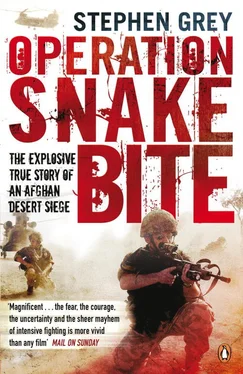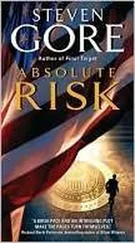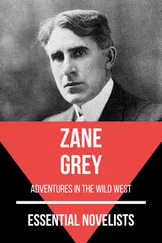But for all this talk of counter-insurgency thinking, many spoke of an army that was still a long way from adapting to these goals. Few soldiers spoke the Afghan languages let alone understood the culture. A six-month ‘tour’ of Helmand was barely long enough to learn the problems of an area, let alone to think up some innovative solutions. While half a year was long enough for infantry soldiers in daily combat, Mackay described it as ‘nonsensical’ for senior figures or those whose jobs involved intelligence or working closely with the population to have such short tours.
Major Steve Hart, who was operations officer of 40 Commando, said that, while the direction from commanders to minimize force had been clear, the military was fundamentally not configured to go much beyond the ‘kinetic solution’. A soldier’s rules of engagement, for example, made it simple to fire a Javelin missile, which at around £70,000-a-go was as valuable as a Porsche. ‘We use them as a sniper rifle, for people-sized targets,’ he said. But filling in the paperwork to authorize $100 to give an Afghan farmer to dig a ditch could take weeks. ‘We are pennies-wise and pounds-stupid,’ according to Hart.
Others said that, while the mission was to maintain security until the Afghan government stepped up to the task, it was far from clear if the Afghan army or government would be ready in time.
‘We’re still covering too much territory too far, too fast,’ said one senior officer. ‘You capture some village or town and you raise hopes. But we’ll be long gone before any of those hopes can be delivered.’
As Major Jake Little said in the letter that he wrote to me from Sangin: ‘I firmly believe there is still a long way to go and I’m not sure the Afghan public support will go before we are close to succeeding.’
After his return, Mackay reflected that one of the problems lay in its approach of working from the grassroots in a country where even the choice of a town mayor like Mullah Salaam was a matter for the country’s president. ‘We have been reliant for good reason on a bottom-up approach,’ he said, but that only bought breathing space for action at a national level to strengthen government, tackle corruption and the drugs trade and advance reconstruction. Yet the two approaches were not in tandem because action on these broader strategic fronts ‘has not occurred in any substantive or effective manner’.
In the military campaign, Taliban fighters were being killed in the hundreds – but still they kept on coming back in wave after wave.
This war was about more than killing, reflected Task Force 1 Fury’s commander, Brian Mennes, who became tired of operations across the country that seemed to have little purpose. There needed to be the follow-up. There had to be the development. And there had to be – above all else – a commitment to provide a stable future, to secure an area and keep it secure. Only then would the population dare to reject the Taliban.
Yet, speaking to me in Whitehall, Sir Jock Stirrup said the arguments against clearances could be exaggerated. In the successful Dhofar campaign in Yemen in the 1970s, for example, where Stirrup served as an RAF pilot, the campaign was ultimately successful ‘when they ran out of anybody to fight’. Improving government, progressing development, addressing grievances and reconciliation were all important, but so was the basic military work of hunting down and eliminating the enemy. ‘Not all military operations are about seizing and holding ground,’ he said. ‘In a complex operation like this it is important to be able to defeat the enemy militarily whenever they manifest themselves. Because in the long term the Afghan population will tend to go with those who they think are winners rather than losers.’
This, though, seemed like the old canard, repeated endlessly by those trying to find meaning in ultimately pointless fighting. Built in was the cultural assumption once expressed by General Paul Harkins, a US commander in Vietnam, when he spoke of ‘the common man of the Orient’, ever respectful of the strong.
In their war with the Afghans, the Soviets had rarely lost a battle, but they found little respect. Why? Because their war like this war was not a contest of gladiators with the population as an audience watching safely from the cheap seats. War in the green zones destroyed their homes and endangered their lives. Afghans told me they would far more respect a man who protected their families, homes and fields than a strongman who had proved his prowess.
Month after month, the biggest story that emerged from Afghanistan was the latest incident of a raid by special forces that ended up killing ordinary Afghans.
In one of the worst, on 22 August 2008, at least thirty-three civilians were killed during a raid by a Spectre gunship in the province of Herat according to a Pentagon inquiry ordered after the US military at first said only five or six civilians died. According to the Afghan parliament, another air strike in July also hit a wedding party and killed forty-seven people including the bride. These were just the biggest incidents.
After Barack Obama was elected president, rather than sending his congratulations, President Karzai appealed for action to stop these raids. ‘The fight against terrorism cannot be won by bombardment of our villages,’ Mr Karzai said. ‘My first demand from the US president, when he takes office, would be to end civilian casualties in Afghanistan and take the war to places where there are terrorist nests and training centres.’
The facts as always were murky, but what many continued to question was the very strategy of the ‘take down’ of senior Taliban commanders. After two years in which a cross had been put through the name of almost every identified senior Taliban leader in Helmand, there was precious little evidence of any effect.
Stirrup said while killing Taliban foot soldiers might be ‘absolutely necessary’ when you were confronted by them, strategically it did not take you forward. Key leaders, such as those who organized suicide bombers, for example, were people ‘you need to target in terms of your offensive operations’. He believed that those who replaced the dead leaders were likely to be less effective than their predecessors. But others feared they were killing those who ultimately could deliver a peace settlement – and helping instead to spawn a new generation of extremists.
Most of the raids that killed civilians were led by US special forces, who operated under rules of engagement which allowed them to judge the prize of a high-value target as worth the risk of some civilian deaths. British special forces, under NATO command, operated under different rules which, as senior generals explained, boiled down to less tolerance of civilian casualties.
Yet it was wrong to see British special force raids as immune from killing civilians. When I last visited Helmand, there was local outrage over a Special Boat Service raid on an alleged drugs smuggler in the Nad Ali district in which a villager and his six-year-old son were killed. A soldier thought the man was reaching for a gun, although he proved to be unarmed. A ricocheting bullet struck the boy. Speaking at a shura , Colonel Neil Hutton, then deputy commander of British forces in Helmand, said some military operations involved ‘forces coming from other areas’ and ‘very often they don’t tell us’ in advance. ‘It only takes one incident to undermine everything we are doing here.’ Hutton had the courage to visit the family involved to apologize and pay compensation. But even as this case was being dealt with, reports came in of a patrol by British special forces in southern Helmand which had called in an air strike during a fire fight with the Taliban. The bombs killed two women and two children who had been ‘hiding in the rocks with the insurgents’, according to commanders.
Читать дальше












